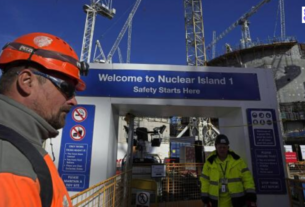Britain’s armed forces are set for a historic transformation as the forthcoming Strategic Defence Review (SDR) outlines an ambitious plan to reshape the nation’s defense capabilities in the face of growing global threats.
Scheduled for release in the coming weeks, the SDR aims to modernize the UK military, increase deterrence, and enhance national resilience in response to cyber warfare, geopolitical instability, and unconventional threats.
“This review is about preparing Britain for the challenges of tomorrow,” said Defence Secretary John Healey. “We must ensure our forces are equipped, agile, and ready for a rapidly evolving threat environment.”
Key Proposals in the SDR
- Defense Spending Increase: The UK plans to raise defense expenditure to 2.5% of GDP by 2027, up from the current 2.2%.
- Army Expansion: The British Army is expected to reverse years of personnel cuts, aiming to grow active forces to over 85,000 troops.
- Cyber and Space Investments: Major funding will go toward cybersecurity infrastructure, satellite defense, and AI-enhanced command systems.
- Upgraded Equipment: Modernization of core platforms like the Challenger 3 main battle tank, Tempest fighter program, and uncrewed aerial systems is a priority.
Homeland Security Focus
The SDR also includes provisions for reviving the “Home Guard”, a civilian defense corps intended to protect the UK’s critical infrastructure from espionage, sabotage, and hybrid warfare threats. The new unit will work alongside the military and emergency services to boost homeland security.
“We’re creating a force for the 21st century that defends not just borders, but networks and power grids,” a senior MoD official stated.
International Partnerships
A central theme of the SDR is deepening cooperation with NATO and European allies. The UK will seek more joint operations, intelligence-sharing, and participation in collective defense initiatives—especially in response to threats from Russia and China.
The review is expected to support a new security pact with the EU, granting Britain limited access to EU defense missions and funding under the European Peace Facility.
Political and Public Reaction
Labour leaders have framed the SDR as a bold reassertion of UK sovereignty and strength. Conservative critics have voiced concern over the affordability of the plans, particularly in light of ongoing economic pressures.
Defense analysts broadly welcomed the direction of the review, though they cautioned that success will depend on timely implementation and sustainable funding.




